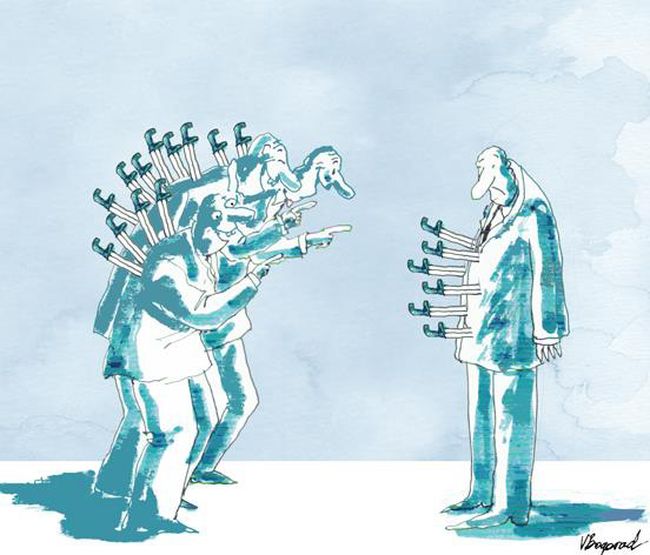“Panopticum” under the guise of “freedom”
The largest leak of personal data in the history of the Net as a symptom of a global social catastrophe
Facebook and Cambridge University have got themselves into a high-profile political scandal.
In one day, Mark Zuckerberg lost six billion dollars, which amounts to one tenth of his fortune as estimated by the American Forbes magazine. But this is nothing compared to dangers facing Zuckerberg now. If an American court finds that Facebook is to blame for the largest leak of users’ personal data in the history of the Internet, he will go bankrupt. The Massachusetts Office of the Attorney General has already launched an investigation, while a number of US congressmen have said that Zuckerberg should be summoned to appear before the Congress.
They intend to demand that the founder of Facebook explain how such a large leak could occur and what measures are being taken to ensure that this does not happen again. Moreover, the US Federal Trade Commission has announced its intention to investigate the issue of protecting sensitive user data on Facebook. It has also become known that the European Commission intends to conduct its own investigation of the Facebook affair.
Cambridge Analytica, which collaborated with US President Donald Trump’s campaign in 2016, in particular, with its former manager Stephen Bannon, took advantage a few years ago of a Facebook application that offered users an opportunity to compose a psychological portrait of themselves. This application has been installed by about 270,000 people, who passed their personal data to it. Cambridge Analytica reported later that it had destroyed the data received, but as it has turned out, not all of it has been deleted. Western media write that during the latest election campaign in the US, the firm used personal data for most of the electorate to further its own objectives.
On March 19, The New York Times and The Guardian published the story of former Cambridge Analytica employee Christopher Wylie. By the way, Facebook blocked his account on the day of the story’s release. Now, Wylie says that his former employer Cambridge Analytica had a contract with the company owned by a teacher of the department of psychology at Cambridge University, one Alex (Aleksandr) Kogan, a native of the former USSR. It was Kogan who developed the application by which people got interviewed on Facebook. Facebook, according to Wylie, did not object to disclosing data, satisfied with the company’s explanation that information was collected for scientific purposes.

Sketch by Viktor BOGORAD
In 2015, this array of personal data came at the disposal of Cambridge Analytica. Kogan’s firm received a million dollars for its services, says Wylie. An interesting detail that has not been investigated further so far: while working at Cambridge Analytica, Kogan, as indicated on the website of St. Petersburg University, received a two-year grant from the federal budget of the Russian Federation.
Independent expert Eduard RAKHIMKULOV noted in a comment to The Day that headquarters are getting ready. “Such programs – for Facebook, VKontakte, and Odnoklassniki, which, albeit banned in Ukraine, still remain popular among our internet users, are already being designed,” Rakhimkulov says. In the expert’s words, earlier such parties as BYuT and the Socialist Party traditionally gathered information by polling people in the provinces, which not always produced adequate results. Pro-presidential parties have been relying on information from state administrations since the Kuchma times, which did not always work either. But the expert has no doubts that social media are a field of activity during parliamentary elections in the near future. Not to fall under manipulations, he advises Ukrainians to closely follow all that he says about himself in the Web. For, unfortunately, our laws and courts are not so “attentive” as in the US about protection of personal data.
Newspaper output №:
№18, (2018)Section
Day After Day





